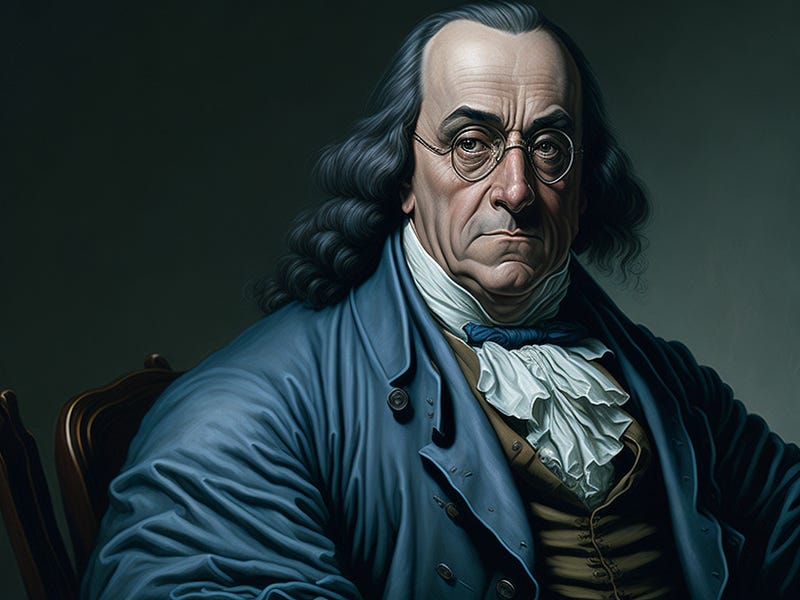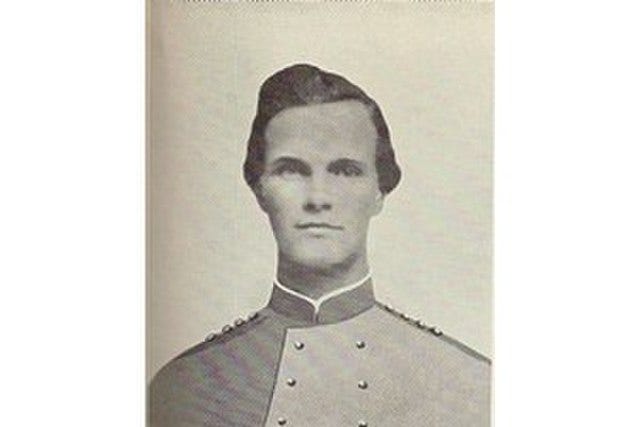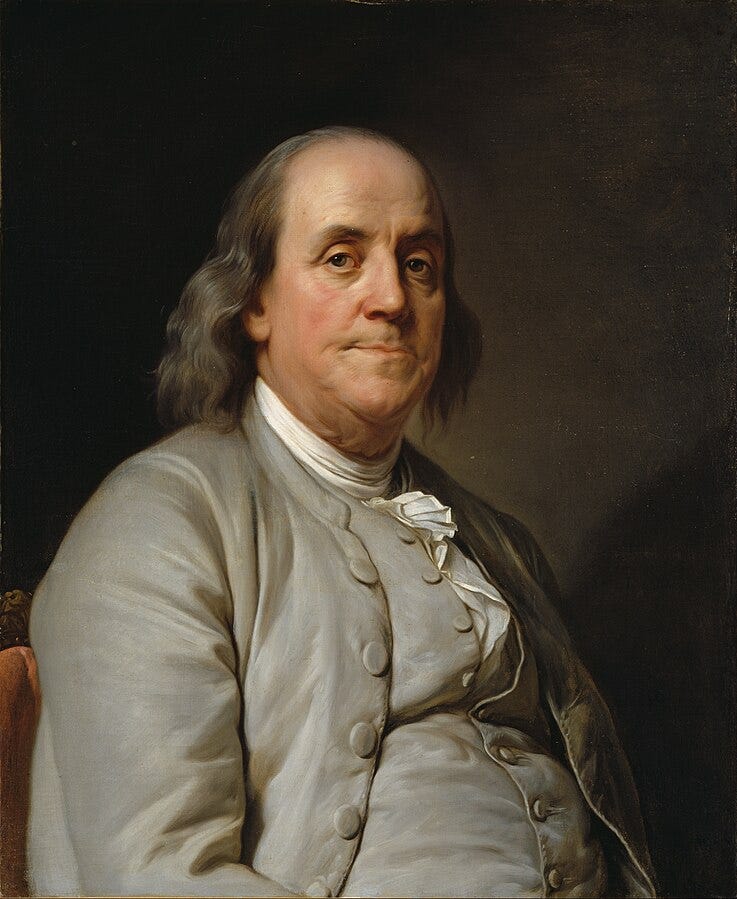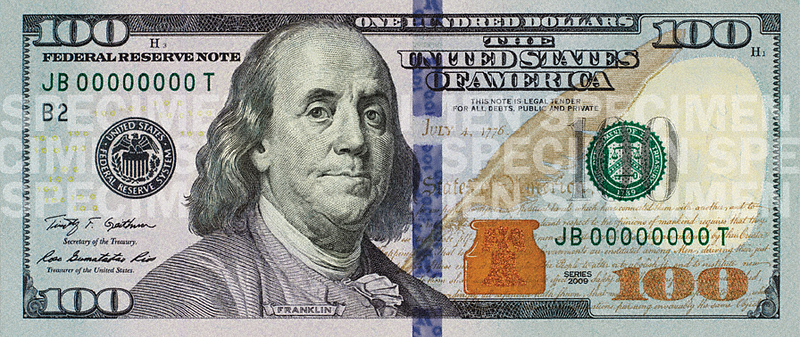Benjamin Franklin: A Pioneering Founding Father of America
Written on
Chapter 1: The Legacy of Benjamin Franklin
Benjamin Franklin stands as a pivotal figure in American history, playing a crucial role in the nation's quest for independence. He was an exceptional inventor, known for creating the lightning rod, and he is celebrated as an entrepreneur, philosopher, and the face on the U.S. hundred-dollar bill.

In a letter to his French friend Jean-Baptiste Le Roy, Franklin famously remarked, “Our new Constitution is now established and has an appearance that promises permanency. But in this world, nothing can be said to be certain, except death and taxes.” These words, penned in 1789 after the Constitution's ratification, highlight his keen insight into governance. At the age of 81, he was one of the 39 signatories of this foundational document, remaining politically engaged until his death from pleurisy in Philadelphia on April 17, 1790.
The American Dream of Franklin
Benjamin Franklin's life exemplifies the true essence of the American dream. Rising from humble beginnings, he became a successful entrepreneur, known for his diligence and responsibility. He was not only concerned with his own success; he showed remarkable compassion for others. Friends described him as tender and loyal, often prioritizing family, even amidst conflicts.
Born on January 17, 1706, in Boston as the tenth of seventeen children, Franklin's family faced financial hardships. His father, Josiah Franklin, an English immigrant, worked as a candle and soap maker. Following the death of his first wife, he married Abiah Folger, with whom he had ten more children, including Benjamin. Although young Franklin was initially slated for a clerical school, he only attended for two years due to financial constraints. At twelve, he began working in his brother James's printing business, which published the "New England Courant."
Eager to publish his writings, he adopted the pseudonym “Silence Dogood” to bypass restrictions and gained popularity with his letters, leading to a major conflict with his brother.

Printing and Publishing in Philadelphia
In 1722, after James was imprisoned for publishing critical materials, Franklin, a lifelong advocate for free speech, left Boston for Philadelphia. Upon arrival, he worked at several printing shops but aspired for more. The Governor of Pennsylvania, Sir William Keith, persuaded him to go to London for equipment to start a newspaper. Unfortunately, Keith deceived him, leading to a two-year wait before Franklin returned to Philadelphia in 1726.
A year later, after inheriting a modest sum from Thomas Denham, Franklin established the “Junto,” a discussion club aimed at mutual improvement. His influential treatise “The Nature and Necessity of a Paper Currency” emerged two years later. Starting in 1730, he published “The Pennsylvania Gazette,” which contributed to his rise in popularity as a printer and author.
Education and Foundational Institutions
In addition to his publishing endeavors, Franklin was committed to education. He founded a lending library in 1731 and, in 1743, the American Philosophical Society, with the vision of creating an academy for gifted youth. His efforts culminated in the opening of the Academy of Pennsylvania on January 7, 1751, which later evolved into the University of Pennsylvania.

Franklin's Political Journey
Franklin embarked on his political career in 1736 as a member of the Pennsylvania Assembly. In 1751, he was elected to the Philadelphia City Council, serving for 13 years. He was a delegate at the Congress of the Seven Colonies in Albany, where he first suggested a union, though it was rejected by both fellow delegates and the British, as the colonies were still under British rule.
Over time, Franklin's views on colonialism became increasingly radical. By 1770, he openly denied the authority of the British Parliament over North America. He co-authored the Declaration of Independence on July 4, 1776, and later engaged in diplomatic missions to Europe, ultimately leading to the signing of the Treaty of Paris on September 3, 1783, which ended the American War of Independence.
The Formation of an Independent Nation
After returning to the United States in 1785, Franklin continued to influence American politics, becoming the President of the Supreme Executive Council of Pennsylvania. He was a key participant in the Philadelphia Convention of 1787, where he signed the world's first constitution on September 17.
Franklin is revered as a founding father of the United States, celebrated for his patriotism and unwavering commitment to democratic principles. His life illustrates how hard work and dedication to shared values can foster meaningful change.

The Lightning Rod: A Notable Invention
In addition to his political and publishing achievements, Franklin was also a brilliant inventor. He conducted significant experiments in electricity, including those with kites, aiming to demonstrate that storm clouds could charge a Leyden jar via a damp string. His innovation of the lightning rod was designed to protect structures from electrical discharges.
Franklin's inventive spirit also led to the creation of bifocal glasses and the modern glass harmonica. He made notable discoveries, including the Gulf Stream, and was proficient in Latin, French, Italian, and Spanish.
Learn about the life and accomplishments of Ben Franklin in this engaging video, exploring his journey from humble beginnings to becoming a pivotal founding father.
This video delves into Benjamin Franklin's life as a founding father, highlighting his contributions to American independence and his legacy.
Dear Readers
I would like to bring attention to a concern affecting content creators like myself on Medium.com. Despite dedicating significant effort to crafting valuable content, compensation often falls short. If you appreciate my work, please consider supporting me on my “Buy Me a Coffee” page. Your contributions, no matter how small, inspire me to keep creating engaging and thought-provoking material. Thank you for joining me on this journey!

